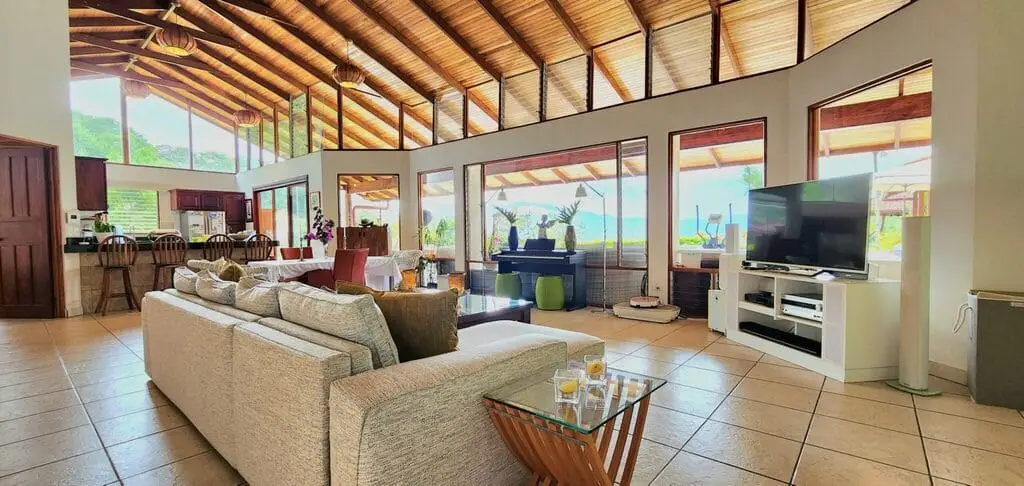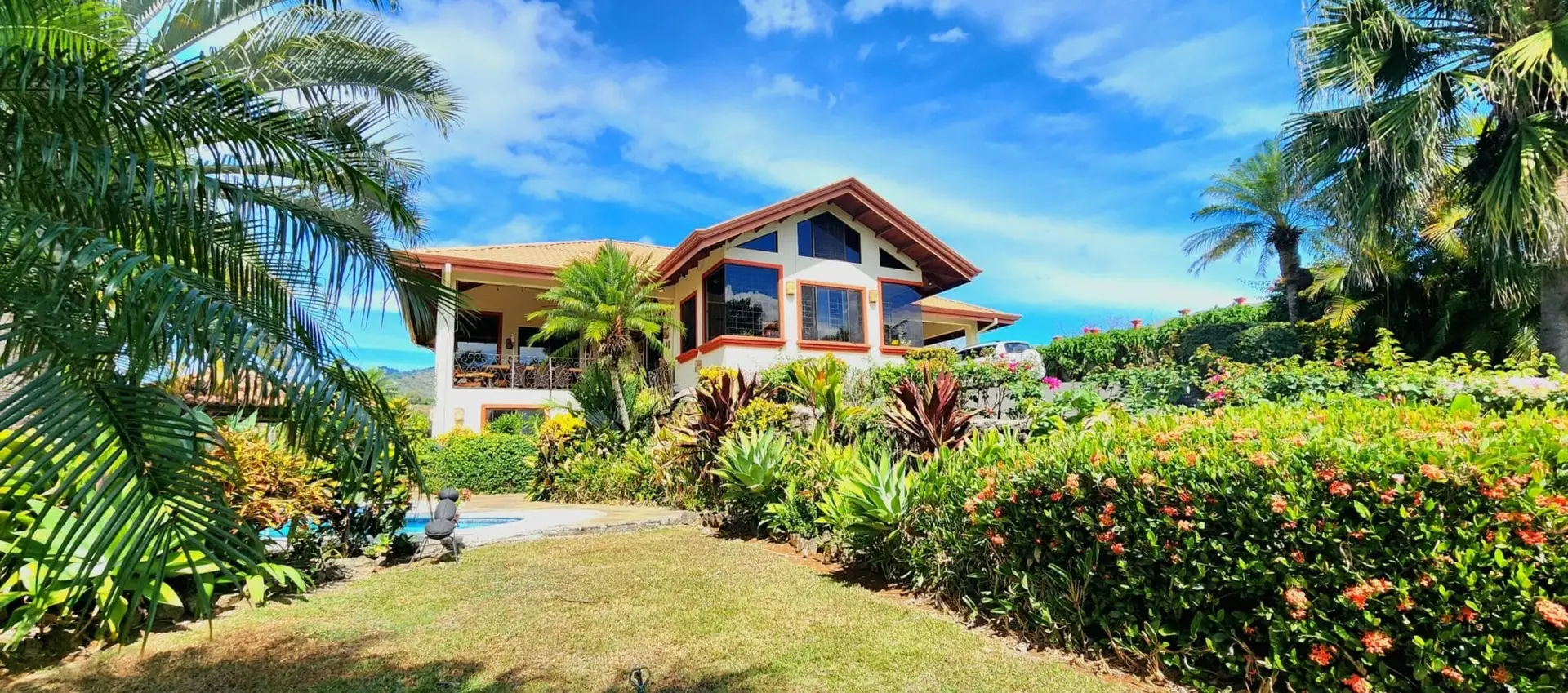Know Your Client (KYC) and Opening an Escrow Account in Costa Rica
- Dennis J. Easters
- Dennis@pldatenasrealty.com
- +506-8854-7721
So, you’ve decided to take the plunge and buy your dream home in Atenas, Costa Rica. With emotions running wild and butterflies in your stomach, you’ve gone over all the pros and cons of the purchase and the subsequent move. With the help of Gerardo and me, you’ve found the perfect house, made an offer which has been negotiated, accepted, and you’ve signed the contract. Now, it’s easy sailing, right? All you’ll need to do is to make it through the due diligence process and clear any contingencies to close the deal, easy-peasy. That sounds good, but in reality, the fun has just begun. The biggest hurdle will be opening your escrow account.
Long gone are the days of making a quick and easy purchase overseas.
When Gerardo and I first hung our shingle in Atenas almost 20 years ago, the process was cut and dry. In a way, it was the Wild West. The closing attorney held the escrow deposit for the term of the contract, the buyer went through the due diligence process, contingencies were cleared, a settlement statement was generated, and at closing, direct deposits were made by the buyer to the seller, real estate agent, and closing attorney. Even though Know Your Client guidelines started in the United States as far back as the 1970s, the events of 9/11 and the 2008 financial crisis were proverbial golden eggs for the United States government to tighten the noose, imposing banking regulations beyond the borders of the United States.
Like many things in life, the process sounds complicated. I won’t lie, it can be. However, as with most things in life, if you have all your ducks in a row, the process can be painless and relatively fast. Most escrow accounts can be opened in a few business days. The requirements are basically the same as when you’re applying for a mortgage back home, without getting the mortgage. Depending on your individual circumstances, additional information may be required. The requirements that follow will be sufficient in most cases. Just remember, Gerardo and I will be available to assist you from start to finish.
You will need to provide the following information to the escrow company:
1. A copy of the sales agreement.
2. A completed Know Your Client (KYC) form.
3. A completed Escrow Agreement form.
4. A copy of your ID (passport or resident ID card).
5. A copy of your driver’s license or utility bill that includes your name and home address.
6. Details about your profession or business.
Step Two The fund verification process
The documentation for this step varies depending on which category you fall under; an employed individual, a retired person, a self-employed individual, or corporate shareholder/partner.
The documents you’ll need for step two, fund verification, as an employed individual are:
1. A reference letter from your bank/financial institution that must include your name, account number, account balance, and length of time that you’ve been a customer of the bank/institution.
2. Copies of six to twelve months of bank account statements.
3. A copy of your 1040 and tax return from the previous tax year. Please block out your Social Security number(s).
4. An employer certificate/reference letter that must include the length of time you’ve been employed, your position, and your current salary.
5. A copy of six months of pay stubs.
6. A copy of your W-2/tax wage statement. Please block out your Social Security number.
7. If your origin of funds or partial origin of funds is coming from an IRA, a copy of your IRA statements.
8. If the origin of funds is coming from an inheritance, a copy of the inheritance legal documentation and tax return form stating the inheritance details.
9. If the origin of funds is from a loan, a copy of the loan documentation.
10. A copy of the transfer documentation from where the loan funds were deposited into your bank account.
11. If the origin of funds is coming from a trust, a copy of the trust documentation.
12. A Costa Rican CPA certificate verifying the income and funds being used for the purchase.
The documents you'll need for step two, fund verification, as a retired person:
1. A copy of your retirement certificate/benefits letter.
2. If you file taxes as a retired person, a copy of your previous years’ tax returns. Please block your Social Security number(s).
3. A reference letter from your bank/financial institution that must include your name, account number, account balance, and the length of time that you’ve been a customer.
4. A copy of six to twelve months’ of bank account statements.
5. If your origin of funds or partial origin of funds is coming from an IRA, a copy of the IRA statements.
6. If the origin of funds is from a loan, a copy of the loan documentation.
7. A copy of the transfer documentation from where the loan funds were deposited into your bank account.
8. If the origin of funds is coming from an inheritance, a copy of the inheritance legal documentation and tax return form stating the inheritance details.
9. If the origin of funds is coming from a trust, a copy of the trust documentation.
10. A Costa Rican CPA certificate verifying the income and funds being used for the purchase.
The documents you'll need for step two, fund verification, as a self-employed individual or corporate owner are:
1. Details of corporate activity.
2. A reference letter from your bank/financial institution that must include your company name, account number, account balance, and length of time that you’ve been a customer of the bank.
3. A copy of six to twelve months’ of corporate bank account statements.
4. A copy of the corporate tax returns.
5. A copy of the legal representatives’ previous years’ tax returns. Please block your Social Security number.
6. A copy of the articles of incorporation.
7. A copy of the documentation of the legal representation of the company.
8. If the company is an active company, a complete copy of the corporate financial statements for the previous quarter.
9. If the company is obtaining a loan for the purchase, a copy of the loan documentation.
10. A copy of the transfer documentation where the loan funds were deposited into the corporate bank account.
11. A Costa Rican CPA certificate verifying the income and funds being used for the purchase.
At first glance, the amount of documentation seems overwhelming.
My personal advice is to follow the path of least resistance by choosing the simplest way to fund your purchase. This will minimize the amount of paperwork that you need to provide when opening an escrow account.
For more details and information, feel free to reach out to Maria, Mariana and Fernanda, the team at our trusted escrow company, AFC Trust Services, S.A. AFC Trust Services, S.A. is duly registered with SUGEF (Superintendencia General de Entidades Financieras) and their team is fluent in both Spanish and English. Everyone at AFC will all be available to assist you with any questions to facilitate the escrow process.
Make sure you let them know that Dennis and Gerardo from PLD Atenas Realty sent you!
AFC Trust Services, S.A.
Costa Rica: +506-4036-3000
USA: 1-855-232-1948
Are you ready to find your luxury home in Atenas today?
Since 2007, Gerardo and I have selectively curated only the BEST properties that Atenas has to offer. That’s our job. Your job is to sit back, relax and start living the “pura vida” in Atenas, Costa Rica!
Ready to take the next step?
Explore our luxury property listings to find your dream home in the world’s best climate and start living the lifestyle you’ve worked so hard to achieve.

Dennis Easters
Real Estate Broker
+506-8854-7721
Dennis@pldatenasrealty.com



